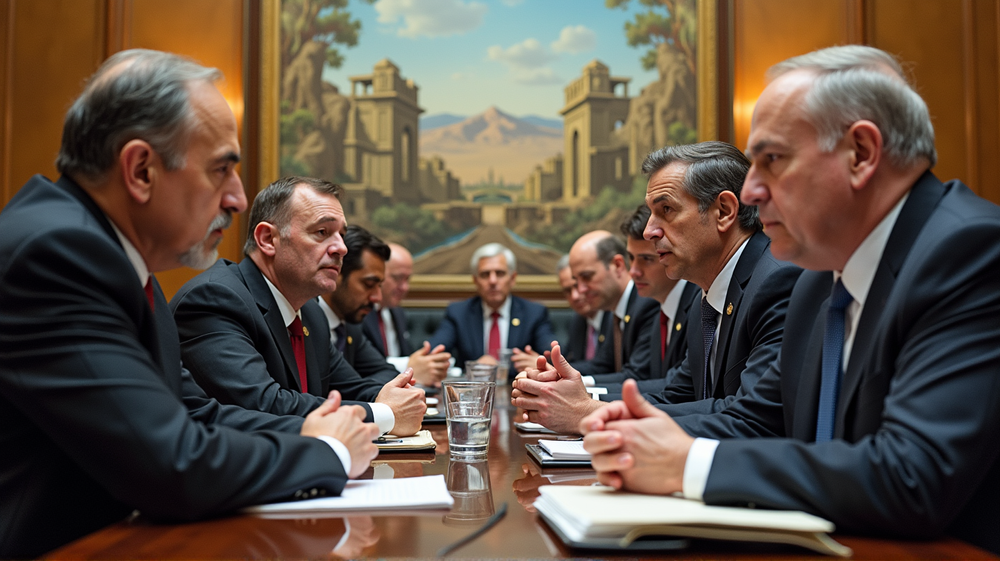Intense Diplomatic Maneuvers
In a whirlwind of international intrigue, Israel is making staunch efforts to influence the wording of a United Nations Security Council (UNSC) resolution ahead of a pivotal vote. The resolution, part of US President Donald Trump’s ambitious Gaza peace plan, includes verbiage about a “credible pathway” to Palestinian statehood—a prospect Israeli leadership is fervently opposing. This dramatic bid aims to curb the resolution’s momentum, which signals a possible transitional administration and international stabilization force (ISF) in Gaza.
The Stakes of the Resolution
Embattled Israeli Prime Minister Benjamin Netanyahu remains resolute in his opposition to Palestinian statehood. He claims it directly contradicts the national policy he has championed. This intensified dialogue between Israel and the US comes just as the UNSC prepares to vote on the amendment, amid diverse pressures from Arab and Muslim nations. They seek to ensure that their participation in the ISF aligns with commitments to Palestinian self-determination, according to Al Jazeera.
Voices of Resistance
As this diplomatic dance unfolds, Palestinian resistance factions have arisen in protest, vocally opposing foreign intervention that they see as veiled occupation. Fierce denunciations from groups like Hamas underscore the deep-seated grievances that continue to fester—evidence that the road to peace is fraught with historical contention.
Regional Reactions
In contrast, a joint declaration by influential nations, including Qatar and Saudi Arabia, pushed for swift UNSC approval. They are poised to support the stabilization effort, contingent upon a UN mandate. However, Israel has staunchly objected to Turkiye’s role, invoking recent tensions over Turkiye’s criticisms and diplomatic maneuvers against Israel.
Netanyahu’s Political Gamble
Domestically, Netanyahu faces an existential threat to his government, which rests precariously amidst far-right dissent over the ceasefire plan. Any perception of acquiescence to Palestinian statehood could fracture Netanyahu’s right-wing coalition, triggering political re-shuffling well before the 2026 elections. This political pressure highlights the fragile nature of leadership amid regional conflict.
Russia Weighs In
Adding complexity to the diplomatic standoff, Russia has tabled an alternative resolution, advocating stronger commitments to Palestinian statehood and territorial integrity. Moscow’s proposal seeks to integrate the West Bank and Gaza under a singular Palestinian Authority, affirming established UNSC precedents. Such a move serves as a nimble counterpoint to the US-drafted resolution—challenging American diplomatic leverage and underscoring the multifaceted nature of international interventions in the Middle East peace process.
As nations prepare for the consequential UNSC decision, the world watches attentively, knowing its outcome may chart the course for Middle Eastern dynamics in years to come. The blend of political maneuvering and deeply-rooted disputes promises to cast long shadows over Gaza’s road to stability.












